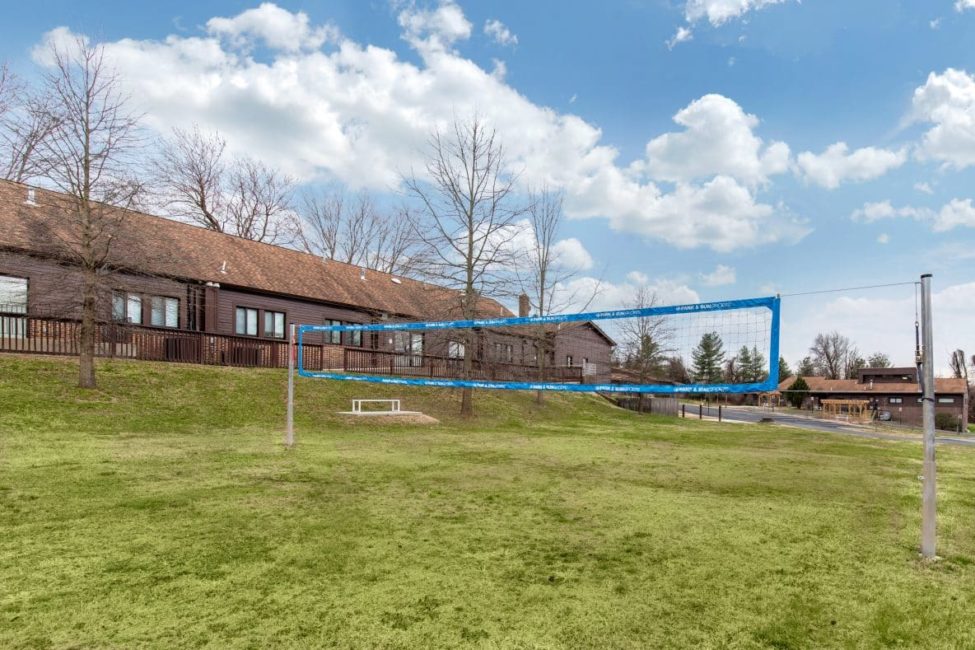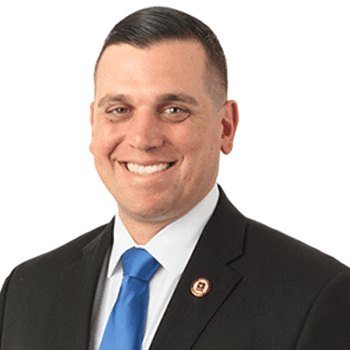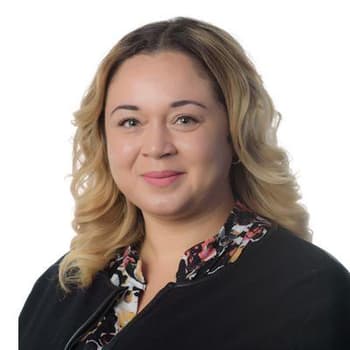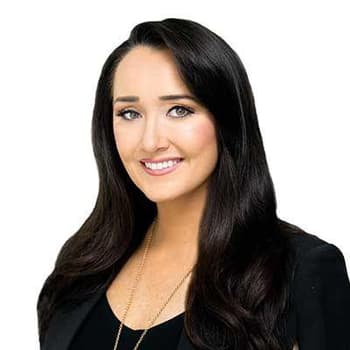Important Notice Regarding Coronavirus (COVID-19)
We are closely monitoring all developments associated with the coronavirus (COVID-19) and are taking proactive steps to ensure the health and safety of all patients, employees and the communities we serve.
Please note the following updates:
Ongoing Monitoring & Response Policy:
ARS facilities are following Centers for Disease Control and Prevention (CDC) guidelines, and we have strong infection control policies, procedures and systems in place. Patients are encouraged to report to nursing at the onset of any new symptoms to be tested.
Patients with a positive COVID-19 or rapid flu test and who are asymptomatic or have mild symptoms may be quarantined and treated for five days within the facility. Patients with severe COVID-19 or flu symptoms may be discharged to a higher level of care to get the help they need.
Visitation Policy:
For the safety of all patients, family members, visitors and staff, visitors may only enter an ARS facility during designated visitation times. A patient’s treatment team must approve any visitor. Patients in the medical detox or inpatient programs do not have in-person visitors to allow them to focus on their recovery.
Questions or Concerns?
If you have questions or further concerns about any of our policy updates, please check back frequently, or you can reach out directly by calling 855-387-3291.
Next Steps
Now that you’ve decided to begin treatment at the IAFF Center of Excellence, it’s time to prepare for your stay. Knowing what to bring, what to leave behind and how to reach our Maryland facility sets the stage for your lifelong recovery.
What to Bring
This guide ensures you have everything you need while you’re with us, so you can focus on what’s really important — healing. We recommend that new residents pack the following items:
- Insurance and pharmacy card
- Driver’s license or state ID
- Necessary travel documentation
- Relevant medical records
- A list of important phone numbers
- One week of season-appropriate clothing that will be laundered on-site
- Sweater or jacket for indoors and outdoors
- Comfortable sleepwear
- Workout clothing and shoes
- If you smoke: Any unopened tobacco product you wish to use during the length of your stay if you’re under the age of 21.
- Vaporizers and e-cigarettes are permitted, but must be disposable and labeled as Pure Nicotine with no additional additives. Must be new and unopened upon arrival.
- Toothbrush, unopened toothpaste and alcohol-free mouthwash
- Unopened shampoo and conditioner
- Unopened sunscreen
- Unopened face wash and moisturizer
- Unopened lotion
- Unopened lip balm
- Unopened feminine products
- Positive reading material
- Pictures of family and friends
- Music device (cannot have internet access)
- Insulin (if dependent)
- 5 day supply of Prescribed non-narcotic medications* with all labels intact and clearly legible
- Shaving razors
- A hat, if desired
- Sunglasses, glasses or contact lenses (if necessary)
- Unopened contact solution (if necessary)
- Hairbrush or comb
- Hobby items (journals, sketchbooks, etc.)
- Pre-paid credit card or cash**
*Please note: Electrical items (e.g., hairdryer, curling iron, electric shavers) are allowed, but will be checked for safety.
*All medication regimens are reviewed by The IAFF Center of Excellence’s medical doctor upon admission. If a client already takes medication for a psychiatric or non-psychiatric condition, please note that there may be changes to your medication regimen.
**To be monitored and retained by staff.
What Not to Bring
Rehabilitation is an opportunity to distance yourself from the people, places and ways of thinking that contribute to drug or alcohol use. Because your focus is on recovery, we prohibit patients from bringing certain items to the IAFF Center of Excellence to help them focus on recovery. Items NOT permitted at our facility include:
- Drugs , alcohol or controlled substances
- Drug or alcohol paraphernalia
- No CBD oils
- Illegal substances or mood-altering drugs (including over-the-counter products that may alter mood)
- Weapons (including pocket knives, BB guns, knives, brass knuckles, explosives, etc.) – these will be handed over to authorities
- Food of any kind (including candy)
- Internet devices (including laptops, computers, tablets and smart watches)
- Narcotic medications (including medicinal/licensed marijuana)
- Clothing depicting drugs, drug paraphernalia, explicit language and/or images
- Inappropriate, overly revealing clothing like short shorts and tank tops
- Expensive or excessive jewelry
- Cameras or handheld video or tape recorders
- Products containing alcohol (e.g., mouthwash, hand sanitizer, nail polish remover, etc.)
- Aerosol products (including hairspray and spray deodorant)
- Dental floss (dental floss will be provided)
- Opened toiletry products (including lotion and shampoos)
- Opened packs of cigarettes
- Opened vitamin bottles
- Pornographic material
- Card decks, games and sporting equipment
Travel Details
During the admissions process, all necessary travel accommodations are booked and confirmed by you or your loved ones. You are free to come to the facility via car, or you can arrange travel here via airplane, train or bus. Wherever you’re coming from, our staff will provide transportation from all local train stations, bus stations and airports.
Expectations after Arrival
Within the first 24 hours after your arrival, you can expect:
Mandatory Searches
To ensure the safety and sobriety of both new and current patients, each resident must consent to a search of both their person and belongings upon arrival. During this search, staff members will collect any items not permitted during treatment and store them in a safe and secure place to be returned when your stay is complete. Additional random searches may be conducted during your stay.
Screening Process
Upon arrival, you will undergo a nursing intake. This will include an EKG, PPD placement, and blood collection for admission labs. You’ll be asked about your substance use, psychiatric history and social and legal history. We will also discuss insurance coverage at this time.
A pre-admission acceptance is a preliminary determination that indicates you are appropriate for admission to our facility. Based on your presentation upon arrival or during your stay, it may be determined that a different facility may be more appropriate.
Medications
All medications will be handed over to the nursing department at the time of admission. Medications must be approved by the IAFF COE providers and will be administered at med pass times or on an as needed basis by the nursing staff. Prescription medications from your home pharmacy are only for use until our pharmacy provides the sealed blister pack. Bring with you a five day supply of your prescription medications. The pills must be in a prescription bottle with all original labeling from the pharmacy. Opened over the counter medications or supplements are not permitted. Prescription bottles with pills other than what is on the label are not permitted. Each pill and quantity will be verified by the nurse for safety.
Medical Exam
Your health is our first priority when you arrive. You will undergo a medical exam and discuss your goals for treatment soon after you get to the IAFF Center of Excellence.
Cell Phone Use
To ensure your continued recovery, cell phone use will be limited during your stay. You will be allowed use of your cell phone three times per week for 30 minutes during non-programming hours. When not in use, your cell phone will be turned off and secured. There are also landlines that can be used during non-programming hours in each of the living areas.
All smart watches (regardless of brand or capability) will not be allowed while admitted to the IAFF Center of Excellence. All smart watches will be stored and secured in our personal property room until discharge. Watches that are mechanical or digital that just keep time, set alarms, etc. will be allowed. Members may also receive a normal watch on loan during their stay if needed.
The Facility
Located just outside Washington, D.C., in the forest hills of Upper Marlboro, Maryland, our 15-acre facility is designed just for IAFF members, with a basketball court, gym and comfortable residential areas with 64 beds. Our facility was designed with the firehouse in mind to make treatment as comfortable as possible. You’ll find familiar touches throughout the common areas and residences
The IAFF Center of Excellence is an ideal place for fire fighters to take steps toward recovery. The gorgeous Maryland landscape, combined with our amenities designed just for fire fighters, sets the stage for your healing, self-discovery and acceptance.
Amenities and Therapies
Our amenities are part of what makes the IAFF Center of Excellence so unique. Amenities and activities that are offered include*:
- Exercise gym
- Swimming pool (currently closed, under renovation)
- Basketball court
- Volleyball court
- Laundry facility and basic housekeeping
- Walking trails
- Outdoor reading and reflection areas
- Yoga therapy
- Equine therapy
- EMDR therapy
- AA and NA meetings
*Activities may change from time to time or from season to season. Access to these amenities varies depending on situational medical recommendations and level of care.

Food
Each day, in-house staff members plan, prepare and serve three nutritious meals for all residents. Typically, you will have a few different meals to choose from for breakfast, lunch and dinner, with vegetarian and vegan options available. Two snacks a day are also provided. If you have any food allergies, please let us know prior to your arrival so we can appropriately accommodate you.
Sleeping Arrangements
Rooms at The IAFF Center of Excellence provide a comfortable place to rest during your recovery. Four patients typically occupy each room. Each of these rooms includes one shared bathroom. The number of residents in each room may vary depending on your individual treatment stage and care needs.
A Day in the Life
Your days at the IAFF Center of Excellence will be spent learning to live a life of improved behavioral health, whether it be through recovering from substance use disorder or treating PTSD or other mental health conditions. You’ll find new hobbies, make lasting connections with other fire fighters and rediscover your own personal interests.
As you move through the different levels of care, your daily life will change as you gain new insight and advance through treatment. Depending on the level of care, your day may include group and individual therapy sessions, recreational activities and more.
Types of Therapy
During your stay, you’ll participate in a variety of personalized therapy sessions and support groups. These sessions are designed to help you conquer addiction by recognizing and overcoming triggers, personal scars and past struggles. Your treatment may include:
- Cognitive behavioral therapy
- Dialectical behavioral therapy skills group
- EMDR (eye movement desensitization and reprocessing) therapy
- 12-Step and Back to Basics Support groups
- Individual counseling
- Group Therapy
Family/ Support Visits and Outreach
During treatment, it’s important to reconcile with yourself and your family. While some people do better with long-distance family treatment, others may prefer to have visits from parents, spouses or other family members/supports. Because connecting with your past is vital, talk sessions are held once a week with family members, usually by phone. Additional family visits may be granted when deemed clinically appropriate, and clients can decline family contact if they wish.
Off-Site Visits
While your treatment will take place at the IAFF Center of Excellence, there may be off-site opportunities available. Off-site visits are generally available to clients in partial hospitalization or outpatient levels of care. With a range of recreation options, including yoga, a gym, basketball and more available on-site, there are plenty of activities available to aid in your recovery.
Smoking Policy
The IAFF Center of Excellence allows residents to take periodic smoke breaks. Keep in mind that patients must smoke in designated areas. The timing and frequency of these breaks will be determined based on situational medical recommendations. If you smoke, you will need to bring enough unopened cigarettes or tobacco products for the anticipated length of your stay. Vapes and e-cigarettes are permitted, but must be disposable and labeled as Pure Nicotine with no additional additives. Bring enough for the entirety of your stay, there will be no opportunity to charge these products. All smoking, vaping and tobacco products must be new and unopened upon arrival. Smoking cessation products may be offered during your treatment.
Please note: patients under the age of 21 will not have the opportunity to purchase tobacco products, vaporizers or e-cigarettes during their stay. Our staff is not able to provide or purchase tobacco products, vaporizers or e-cigarettes for patients under the age of 21.
The Treatment Process
The IAFF Center of Excellence consists of two treatment programs: the substance abuse program and the mental health program. The substance abuse program is designed to provide treatment for individuals with a substance use disorder or co-occurring disorders (a substance use disorder and another behavioral health disorder, such as PTSD). The mental health program is intended for individuals seeking treatment for behavioral health disorders other than substance use disorders.
There are a number of levels of care within the substance abuse program, ranging from clinically managed residential detox and residential treatment to partial hospitalization and intensive outpatient care. The treatment programs that you participate in will depend on your own personal needs. Care often starts with detox, an intensive process that typically takes between five and seven days. From there, you’ll either transition to residential care, partial hospitalization or intensive outpatient care. During and after treatment, staff members will work with you to formulate an effective aftercare plan for when you return home.
The entire treatment process varies in length, but often lasts between 30 and 45 days. After treatment, you’ll return home equipped with the tools and resources you need to continue your recovery at home, work and everywhere in between. Your treatment may include:
- Clinically managed detox
- Intensive inpatient
- Partial hospitalization
- Intensive outpatient
- Outpatient
- Aftercare
Medically Assisted Treatment
Depending on what substance is being misused, quitting cold turkey can be dangerous and even life-threatening. That’s why the IAFF Center of Excellence provides medication-assisted treatment (MAT), which combines behavioral therapy and medication to treat substance use disorders. This combination can also be used to treat co-occurring disorders.
Our regulated clinically managed detox plan and 24-hour care services are available for those in residential treatment. Individualized clinical care and tapering ensures that you have a healthy and comfortable transition. Before leaving the center, our staff will provide you with a list of local resources and clinics for continuing care as you start your substance-free life.
Alumni Aftercare
During your treatment, you’ll become part of a dynamic recovery family, but that camaraderie doesn’t end when you leave the IAFF Center of Excellence. Our alumni aftercare program keeps you in contact with an IAFF Center of Excellence research assistant for 18 months after treatment.
Our Staff
Our full-time medical and clinical staff at the IAFF Center of Excellence empower people to get back to the careers they love with renewed health and vitality.






Insurance and Your Obligation During Treatment
Many health insurance plans require that you pay out-of-pocket expenses prior to accessing your healthcare benefits. These “patient responsibility” expenses may include deductibles, co-pays, a coinsurance and maximum out-of-pocket expenses. Each patient’s individual responsibility varies, depending on a number of factors, including:
- Your individual benefits plan
- Length of stay at center
- Type of services received during treatment
- Other services offered at center, but not covered by your insurance provider (lab tests, non-covered prescriptions, etc.)
- Reasonable boarding fees (should you decide to stay with the facility for treatment at outpatient levels of care)
Our financial counselor will review these fees with you within 72 hours of admission, or as soon as you’re medically stable. The deductible is due upon admittance to our center. The co-insurance amount and out-of-pocket balance will be billed and paid for after treatment, once services are complete. On-site financial counselors will again review your financial responsibility during treatment with case managers who can help you navigate FMLA.
Keep in mind that it’s your responsibility to check with your insurance provider prior to be admitted at the IAFF Center of Excellence to understand your individual benefits plan. Please also note that your insurance plan may not be a “participating provider” with the IAFF Center of Excellence. You are responsible for all non-covered and out-of-pocket costs related to your treatment during your stay.
The Recovery Village aims to improve the quality of life for people struggling with substance use or mental health disorder with fact-based content about the nature of behavioral health conditions, treatment options and their related outcomes. We publish material that is researched, cited, edited and reviewed by licensed medical professionals. The information we provide is not intended to be a substitute for professional medical advice, diagnosis or treatment. It should not be used in place of the advice of your physician or other qualified healthcare providers.